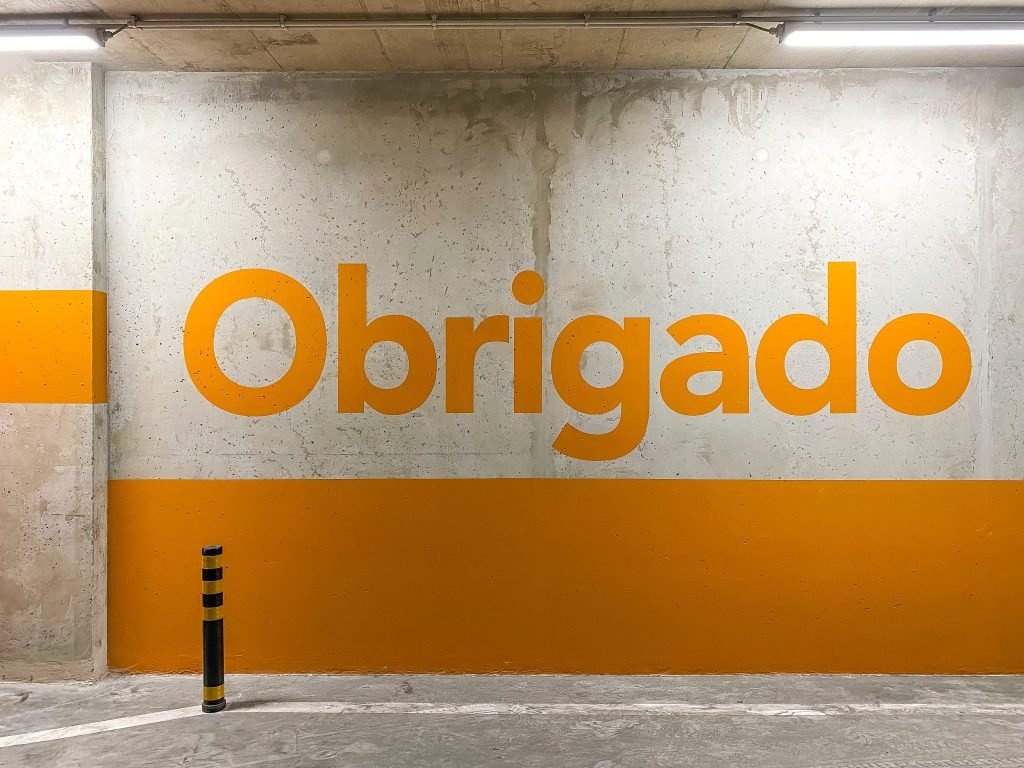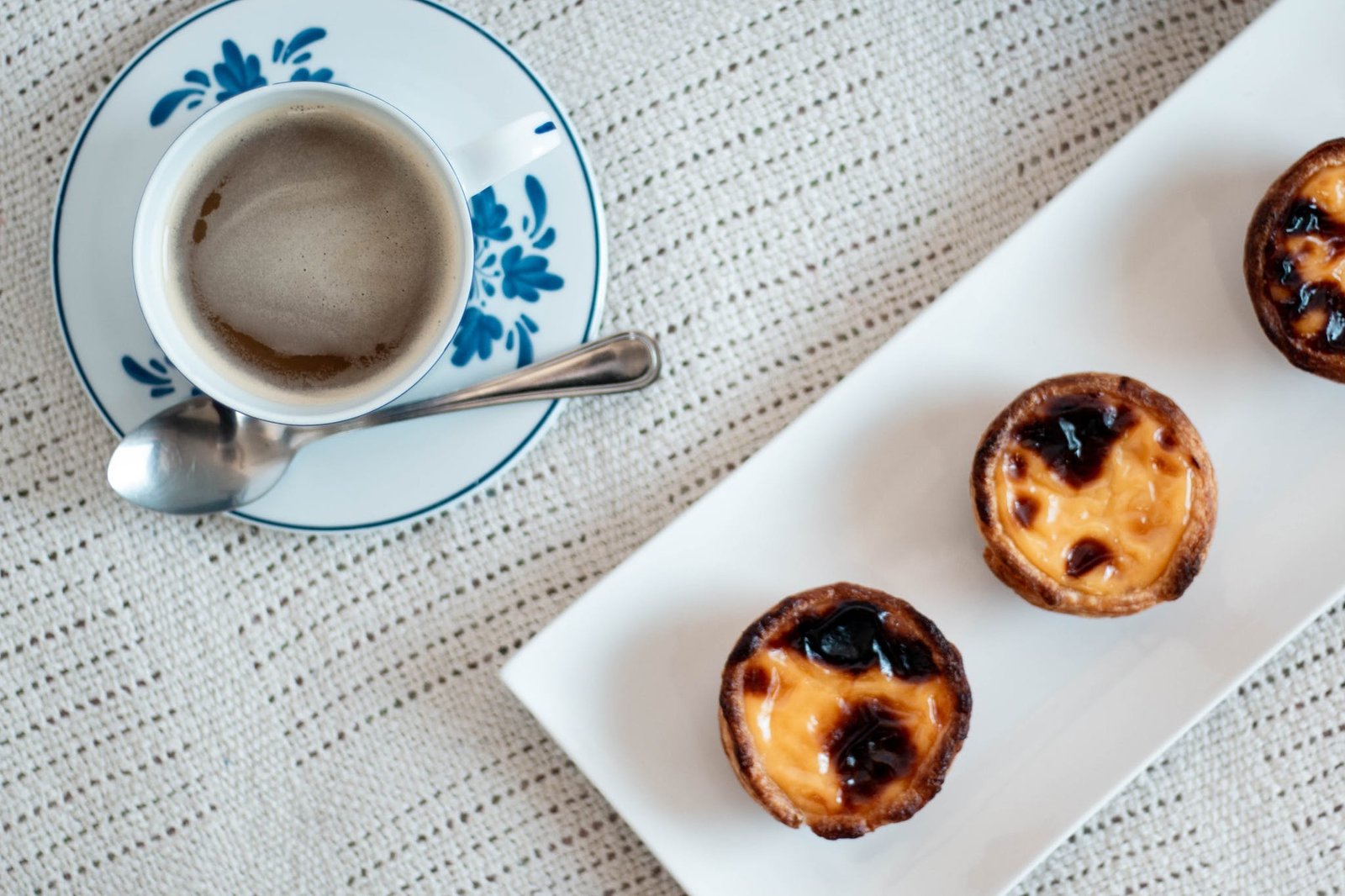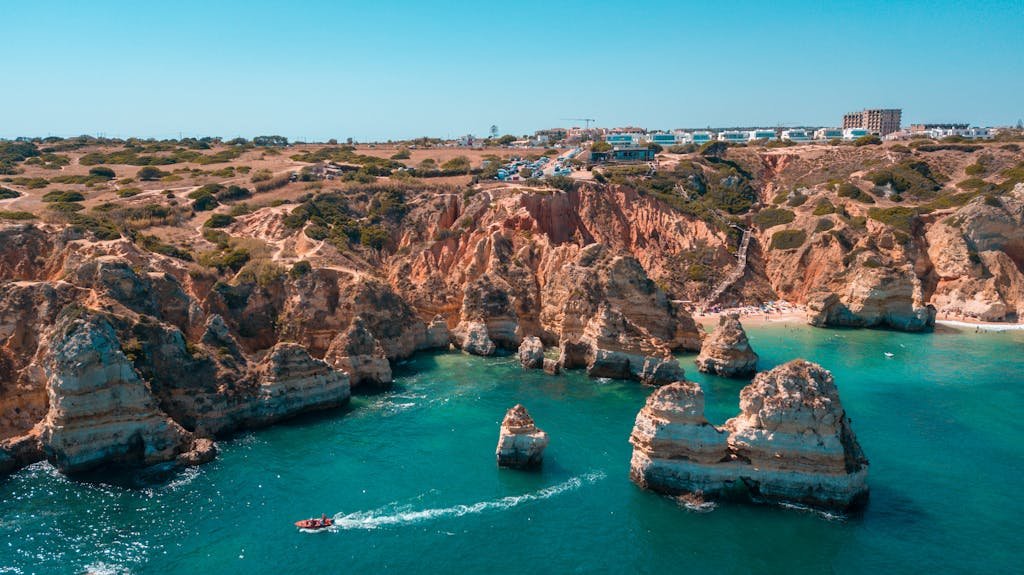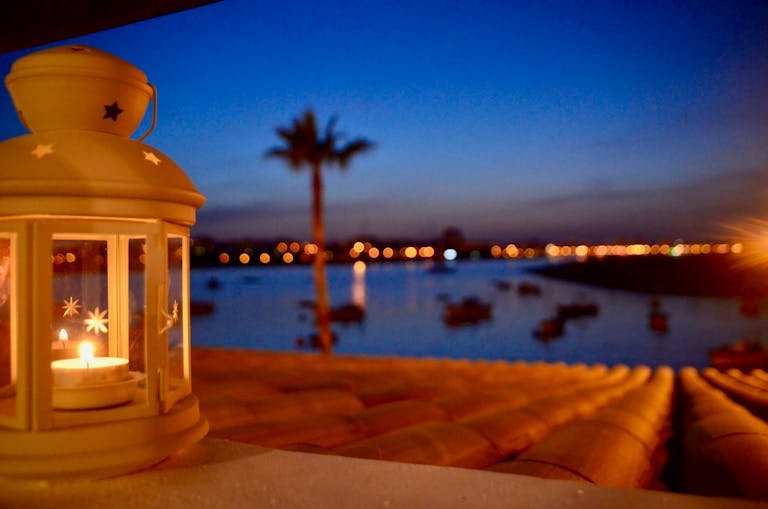15 Simple Ways to Say Thank You in Portuguese (2024)
Last Updated on: 25th October 2023, 07:30 pm
Are you traveling to Portugal, Brazil, or another Portuguese-speaking county and interested in knowing how to say thank you in Portuguese?
Great!
It’s always a good idea to know how to show gratitude in the local language if you’re visiting a new country!
My parents emigrated to Portugal from South Africa a few years ago and our family spent plenty of summers on the coast of Mozambique (where they speak Portuguese) when I was younger, so it’s a language I’m quite familiar with.
As with most languages, there are quite a few different ways to say thank you in Portuguese.
In Portuguese, there are various ways to say thank you depending on the situation and level of formality. Whether you want to express gratitude formally or informally, there’s a phrase for every occasion.
From “obrigado” to “brigadão,” here are 15 different ways to say thank you in Portuguese:
Key Takeaways:
- “Obrigado” is the most common way to say thank you in Portuguese, used by men.
- “Obrigada” is the feminine form of “obrigado” and is used by women.
- To emphasize gratitude, say “muito obrigado,” which means thank you very much.
- In Brazil, you can use “valeu” to say thanks or cheers in an informal setting.
- “Brigadão” is an informal way of expressing a big thank you, commonly used in Brazil.
Disclaimer: This post may contain affiliate links. If you make a purchase from one of them I will receive a small commission at no extra cost to you, which allows me to keep this blog up and running!
How to Say Thank You in Portuguese
In Portuguese, the most common way to say thank you is by using the phrase “obrigado” for men and “obrigada” for women.
⚠️ It’s worth noting that the choice between “obrigado” and “obrigada” depends on your own gender, not the gender of the person you’re addressing.
This expression is used in both formal and informal situations and is considered the standard way to express gratitude in the Portuguese language.
If you’re thanking someone for a kind gesture or showing appreciation for their help, “obrigado” and “obrigada” are versatile phrases that can be used in a variety of contexts. Whether it’s in a business setting or among friends, using these expressions will help you convey your gratitude effectively in Portuguese.
To further emphasize your appreciation, you can also combine “obrigado” or “obrigada” with the word “muito” (meaning “very” or “much”) to say “muito obrigado” or “muito obrigada,” which translates to “thank you very much.”
This intensifies the gratitude expressed and adds an extra touch to your message of thanks.

How to Say Thank You Very Much
To express deep gratitude and appreciation in Portuguese, you can say “Muito Obrigado.”
The word “muito” translates to “very” or “much” in English, intensifying the meaning of “obrigado” which is “thank you.”
This phrase is commonly used in both formal and informal settings to convey a strong sense of thankfulness.
For example, if someone has gone above and beyond to help you or if you want to express your heartfelt gratitude for a kind gesture, using “Muito Obrigado” is appropriate. It’s a way of emphasizing the extent of your appreciation and letting the other person know just how grateful you are.
In Brazil, “Muito Obrigado” is widely used, although it can also be understood and appreciated in other Portuguese-speaking countries. Remember that “obrigado” is the masculine form and “obrigada” is the feminine form.
So, when expressing your thanks, make sure to use the appropriate form based on your own gender.

Alternative Ways to Say Thank You in Portuguese
While “Muito Obrigado” is the most common way to say thank you very much in Portuguese, there are other phrases you can use.
How you say thank you may depend on the context or region of Portugal that you’re in.
And in case you’re wondering, our favorite region of Portugal is Sintra. Here’s how you plan a Sintra day trip from Lisbon!
- Muito obrigado mesmo – This expression adds an extra emphasis on the gratitude, reinforcing the “very much” aspect.
- Muito, muito obrigado – Doubling up the word “muito” intensifies the meaning and conveys an even higher level of appreciation.
- Muito agradecido – This phrase is an alternative way to say “thankful” or “grateful” and is widely used to express deep appreciation.
| Expression | Translation |
|---|---|
| Muito obrigado | Thank you very much |
| Muito obrigado mesmo | Thank you very, very much |
| Muito, muito obrigado | Thank you very, very much |
| Muito agradecido | Very grateful |
These variations allow you to express your deep gratitude and appreciation with different degrees of emphasis.
Feel free to use the one that resonates most with the situation and the level of gratitude you want to convey.

How to Say Cheers or Thanks
In Brazil, if you want to express gratitude in a more informal way, you can use the word “valeu.”
This phrase is commonly used among friends and in casual situations to say thanks or cheers.
It is similar to saying “thanks” or “cheers” in English and carries a sense of appreciation and camaraderie.
Note that “valeu” is not commonly used in Portugal, but it is widely understood throughout Brazil. So, if you’re in Brazil and want to show your thanks in a casual and friendly manner, “valeu” is the perfect phrase to use.
Here’s an example of how “valeu” can be used in a conversation:
Example:
Person A: Hey, thanks for helping me move this couch.
Person B: No problem! Valeu, man!
| Situation | Phrase |
|---|---|
| Expressing gratitude informally among friends in Brazil | Valeu! |
| Thanking someone for their help or assistance | Valeu pela ajuda! |
| Showing appreciation for a gift or favor | Valeu pelo presente! |
Remember, “valeu” is a more laid-back way to say thanks or cheers in Portuguese, specifically in Brazil. It’s a great way to express your gratitude in informal situations and among friends.

How to Say a Big Thank You in Portuguese
In Portuguese, there are various ways to express gratitude, and one informal and heartfelt way to say thank you is “brigadão.”
This phrase is commonly used in Brazil to convey a big thank you, particularly among friends or in casual settings.
While the phrase “brigadão” is not commonly used in Portugal, it is widely understood throughout Brazil. It is an augmentative form of “obrigado,” which means a big thank you. The use of “brigadão” adds an extra level of appreciation and emphasizes the sincerity of your gratitude.
When expressing your thanks to a man or a male friend in Portuguese, you can use “brigadão” to convey a warm and informal appreciation.
⚠️ It’s important to note that the phrase is gender-neutral, making it suitable for expressing gratitude to individuals of any gender.
Using “brigadão” allows you to show extra appreciation and create a more personal connection with the person you’re thanking.
So the next time someone does something kind for you in Brazil, don’t hesitate to express your gratitude with a warm and heartfelt “brigadão.”
| Portuguese Phrase | English Translation |
|---|---|
| Brigadão | A big thank you |
| Obrigado | Thank you |
| Muito obrigado | Thank you very much |

Expressions of Gratitude in Portuguese
When it comes to expressing gratitude in Portuguese, there are various phrases you can use to show your appreciation.
One common expression is “obrigado,” which is used by men to say thank you, and “obrigada,” which is used by women.
These phrases can be used in both formal and informal situations and are the standard way to express gratitude in Portuguese.
If you want to emphasize your gratitude and say thank you very much, you can use the phrase “muito obrigado.” The word “muito” means “very” or “much” in English, and when combined with “obrigado,” it creates a stronger expression of appreciation.
This phrase is suitable for both formal and informal settings.
In addition to these common expressions, there are other ways to say thank you in Portuguese.
For example, you can use the phrase “gratidão,” which means “gratitude.” This word can be used as a way to say thank you and show your appreciation.
Here are some more expressions of gratitude in Portuguese:
- “Obrigado por” – Thanks for
- “Obrigado pela ajuda” – Thanks for the help
- “Obrigado pelo presente” – Thanks for the gift
These phrases allow you to express appreciation for specific actions or gifts.
Whether you choose to use the standard “obrigado” or one of these alternative expressions, expressing gratitude in Portuguese is a meaningful way to show your appreciation.
| Phrase | Translations |
|---|---|
| Obrigado | Thank you (for men) |
| Obrigada | Thank you (for women) |
| Muito obrigado | Thank you very much |
| Gratidão | Gratitude |
| Obrigado por | Thanks for |

How to Say Thank You in Portuguese FAQs
Do I Say “Obrigada” or “Obrigado”?
“Obrigada” is the feminine form, used by women to say “thank you.”
“Obrigado” is the masculine form, used by men to express gratitude.
How Do Brazilians Say Thank You?
Brazilians generally use “Obrigado” for thank you.
How Do You Say Thank You in Portuguese Slang?
In Portuguese slang, you might hear variations like “Valeu” or “Brigado,” which are more casual ways of saying thank you.
How Do You Respond to “Obrigado”?
A common response to “Obrigado” is “De nada,” which means “You’re welcome.”
What Is No Thank You in Portuguese?
No thank you in Portuguese is “Não, obrigado(a). This is used when you want to decline something politely.

Saying Thank You in Portugal or Brazil
Expressing gratitude in Portuguese can vary depending on the region, context, and level of formality.
The most common way to say thank you is “obrigado” for men and “obrigada” for women. These phrases are used in both formal and informal situations and are the standard way to express gratitude in Portuguese.
Now, that you know how to thank someone in Portuguese, you’ll feel more comfortable saying obrigado as your waiter places a delicious pastel de nata in front of you!







